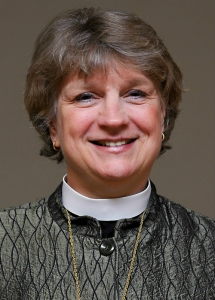 By Bishop Ann Svennungsen
By Bishop Ann Svennungsen
It didn’t take long before tears came to his eyes. We were sitting at the pre-game lunch last Saturday before Homecoming at Concordia College in Moorhead. My table mate had come to watch his son play football.
I told him about my work as a bishop in the region that includes North Dakota, South Dakota, and Minnesota. The bishops had been discussing ways our church could support farmers – challenged by tariffs, low commodity prices, and weather too wet for harvesting. (While eating our lunch, we could see student workers heave shovelfuls of snow to clear the bleachers).
“Just keep checking in with me.”
That’s when the tears came. “We will lose some family farms for sure this year; farms in the family for four generations. It’s horrible to be a fifth generation farmer – and to lose the land on your watch. There’s so many things a farmer can’t control. Even working your hardest and smartest isn’t enough.”
After a moment or two, he continued, “I guess I’d like the church to offer counseling and mental health support. Farmers don’t express their feelings too much – and that can get us in trouble. One of the hardest things to do is to ask for help.”
MANY OF US HAVE experienced times when we’d done all we could – everything just right – but the outcome wasn’t what we’d hoped. Many of us have experienced deep loss, but couldn’t bring ourselves to ask for help.
Recently, I was with someone in such a situation. She told me about her friends who, in her time of loss, continued to ask her: “How can we help?” Never sure what specific help she needed at the time, she replied, “Just keep checking in with me.” I love that answer. I wish I’d thought of it for the seasons of loss in my life.
“It’s horrible to be a fifth generation farmer – and to lose the land on your watch.”
“Just keep checking in with me.” The farm crisis may also compel you to advocate for policy change or the reorganization of seed production monopolies.
During the 1990s farm crisis, the Northwestern Minnesota Synod had trained counselors available within 20 minutes of any farm in the synod. And they were used. Next Tuesday, a group of Lutherans leaders will gather at the Lutheran Social Service office in Fargo next week to brainstorm ways to support farm and ranch families. I hope to join via Zoom and will share what I learn.
In the meantime, I encourage all of us to “check in” with the farmers we know.
